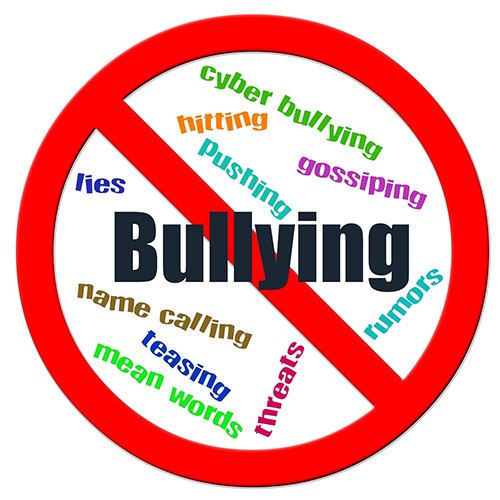Most kids tease each other. It usually begins early and probably goes on through all the growing years. But when it becomes stronger than just kidding around you are into bullying.
If you think your child is being bullied or that he might be bullying other children, you are probably right.
So what should you do? For sure you should do something.
Bullying can begin in preschool. It shouldn’t be ignored then nor at any time. It is bullying when a child makes fun of another child’s hair or speech or the fact that he doesn’t throw the ball very well.
It certainly is bullying when one child threatens another child with physical abuse.
So whether your child is the bully or the one being bullied, parents or caregivers need to be aware and do what they can to stop this from happening.
Talk with your child or your teen about bullying. Be sure that you hear his views on bullying.
Remember that bullying can be physically hurting someone, but it also can be verbal, such as threats, teasing, ridicule and harassment.
The best way to find out if your child is being bullied is to talk about bullies. Encourage your child to talk about what it is like at his school. Does he see children who are bullied by others? Listen to how he describes what happens. If he says he is being bullied, encourage him to tell a teacher, counselor or the principal.
Some kids feel that they are a tattletale if they tell; that’s not true. Explain to your child everyone has a right to be safe; not telling means more bullying. Talking with your child is the first step not only for his safety but for the safety of others.
Your goal is to become aware of his view and also to learn if he is more leaning toward being a bully or a victim. Hopefully, talking together about this subject will give you insights about his behavior and also open up a chance to talk about a very sensitive subject.
Key tips
If you think your child is the bully:
1. Talk about bullying behavior over and over again. Be consistent in what you tell your child.
2. Express the importance of being careful not to hurt other people’s feelings.
3. Be aware of your child’s being overly self-confident and arrogant.
4. Pay attention to your child’s lack of empathy for kids who are teased.
5. Try to teach the difference between friendly and hurtful teasing.
6. Notice if your child likes to be in control of social situations.
7. Don’t allow bullying between siblings in the family.
8. Don’t assume only boys bully; girls can be bullies, too.
9. Be a positive role model.
If you think your child is being bullied:
1. Talk about bullying, harassment and intimidation. Discuss what it is and who at school does it.
2. Look for signs your child is being bullied such as a drop in grades, inappropriate temper outbursts, loss of appetite, physical bruises, regularly losing school supplies and possessions at school, problems sleeping, missing lunch money and not wanting to go to school or ride the bus.
3. Teach your child when and how to ask for help at school.
4. Remind your child that bullies love to isolate kids so he should stay in a group.
5. Encourage your child to become friends with others or to become involved in group activities.
6. Be empathetic and caring when discussing this with your child. Never blame a victim.
7. Alert the school. Don’t ignore this problem. Your child needs you to help with this difficult situation. Be his advocate.
8. Be a positive role model.
Anyone can be a bully. Some do it by physical pushing and hitting. Others do it by quieter behavior such as rumors, lies, e-mails and excluding others. However they may bully others, it is wrong.
Cynthia Martin is the founder of the First Teacher program and director of Parenting Matters Foundation, which publishes newsletters for parents, caregivers and grandparents. Reach Martin at pmf@olypen.com or at 681-2250.



